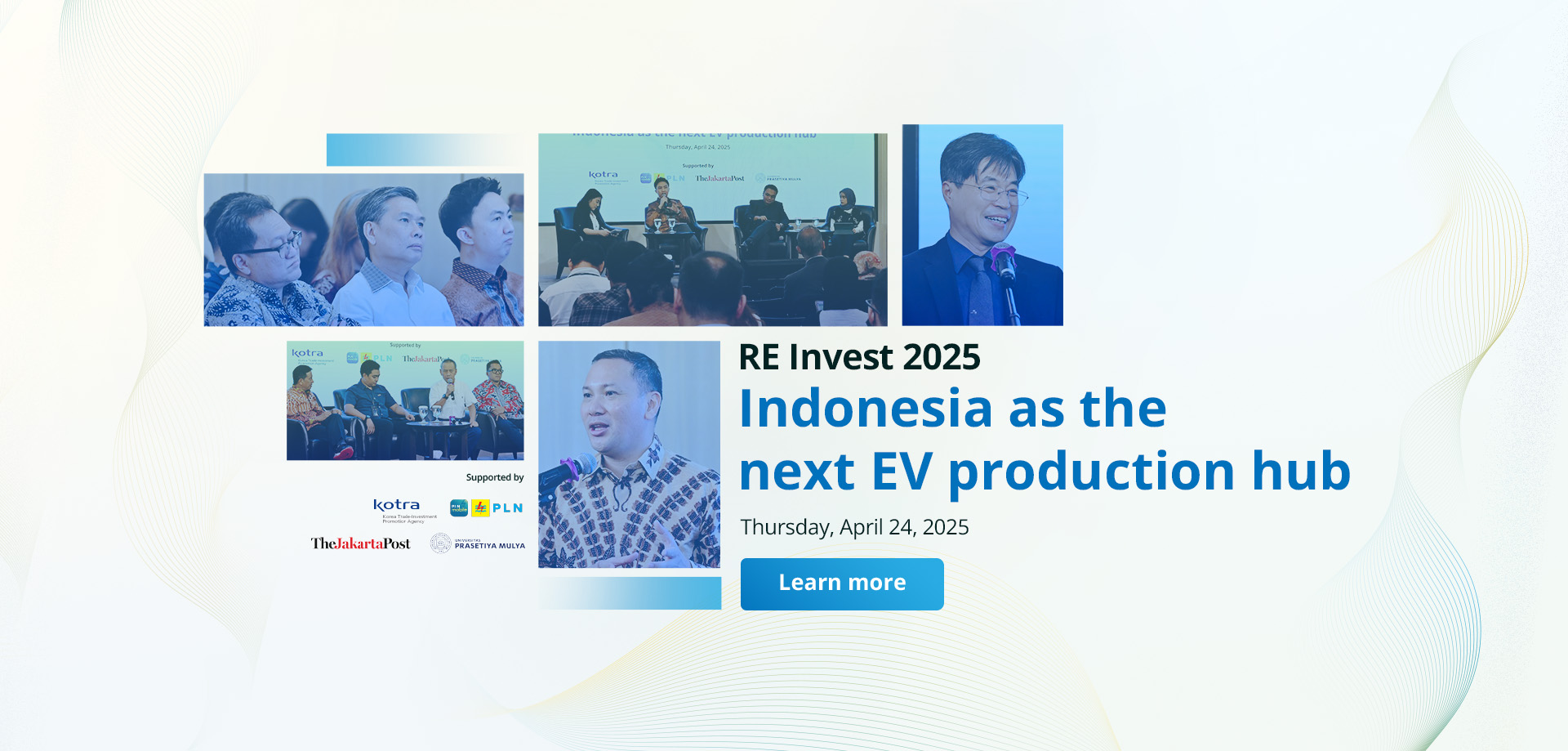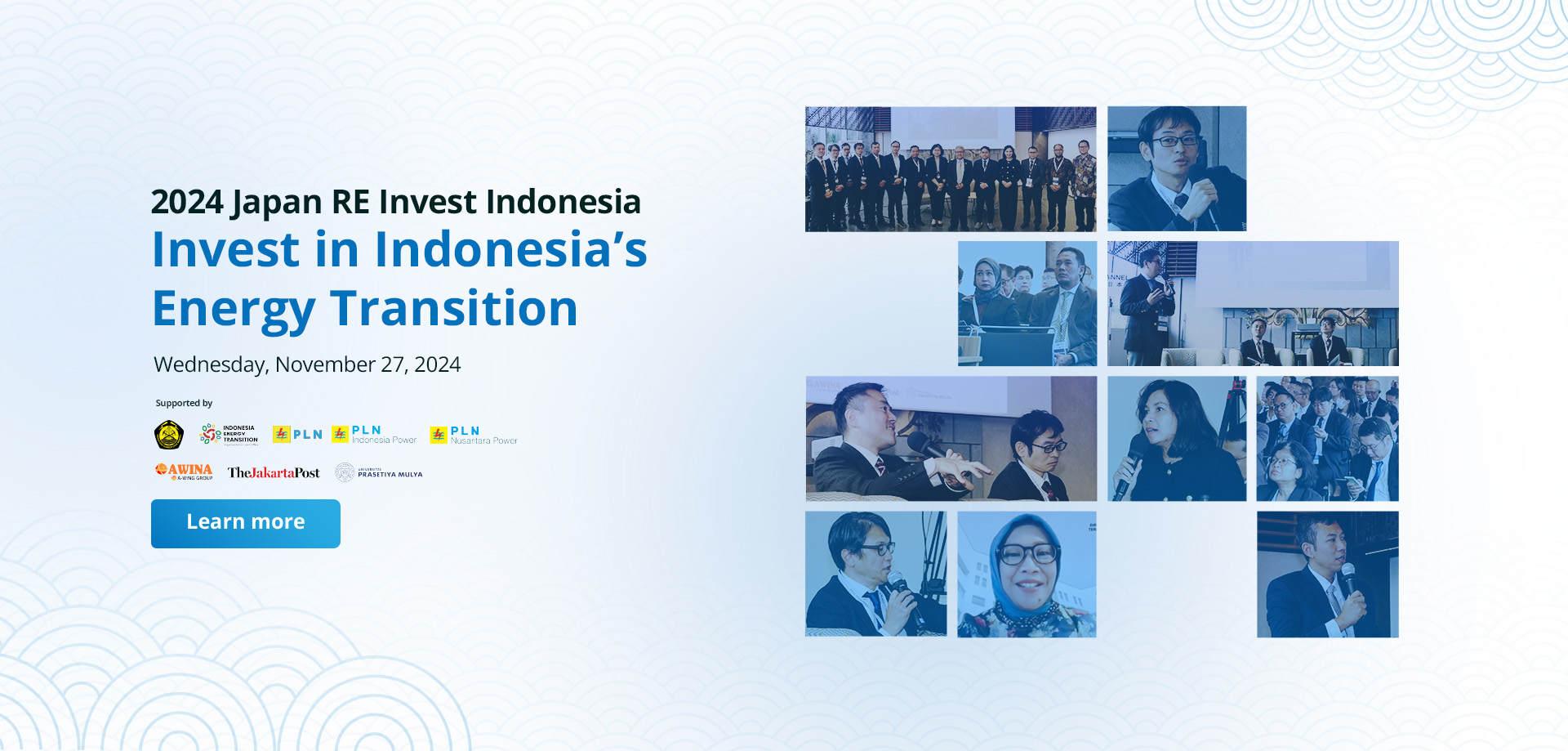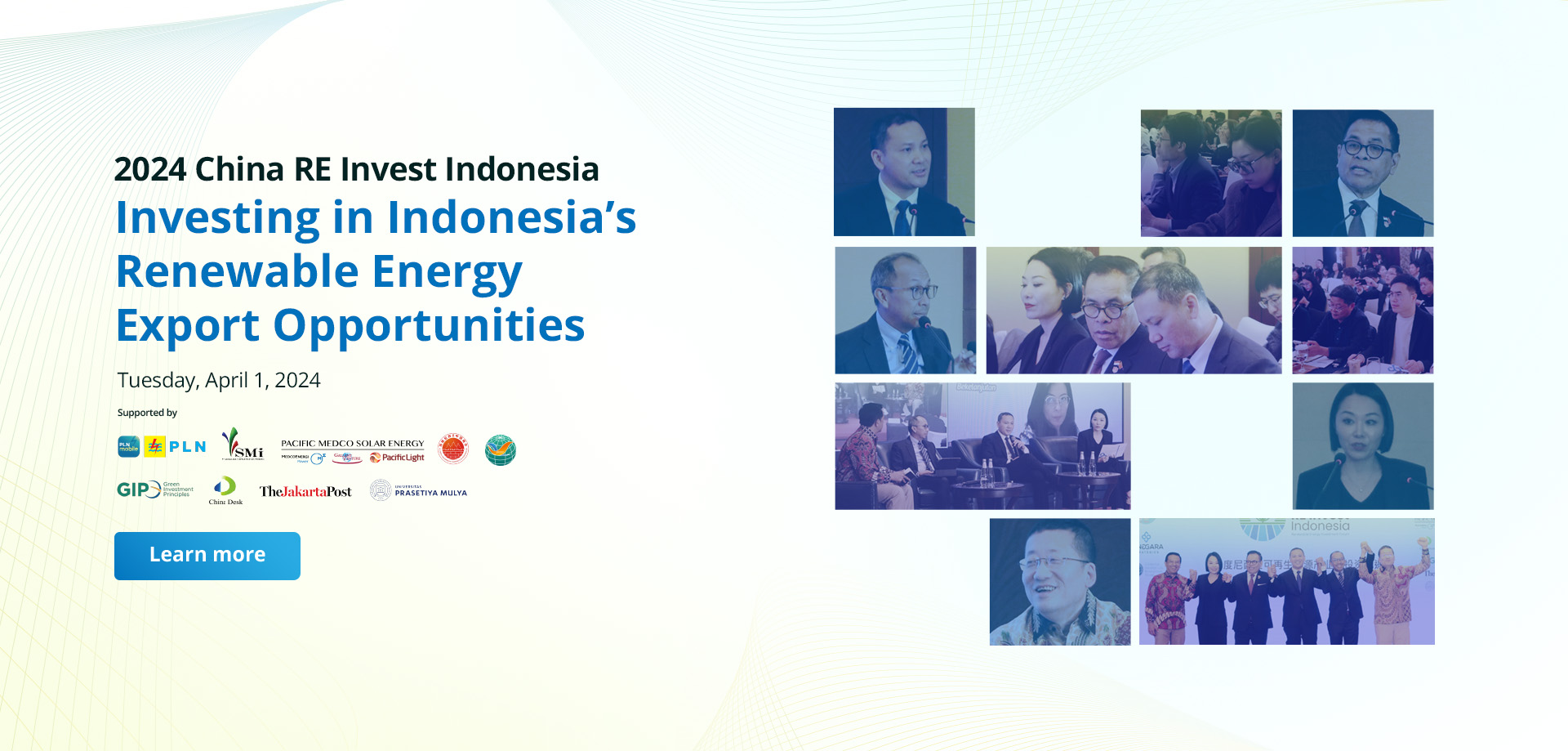What is RE Invest Indonesia ?
RE Invest Indonesia is a multi-stakeholder platform established by Tenggara Strategics in cooperation with the Centre for Strategic and International Studies (CSIS) to bring together renewable energy players from Indonesia, China, Japan, and South Korea. First started in 2021, RE Invest Indonesia 2023 is the third international renewable energy investment forum of its kind. RE Invest Indonesia 2023 seeks to bring up a discussion of the opportunities that spring from the Indonesian government’s environmental commitments to achieve net zero emission target by 2060, particularly in realizing the national electricity goal of phasing down fossil fuels by 2050 and state electricity firm PLN’s 2021-2030 electricity procurement plan (RUPTL). RE Invest Indonesia 2023 also aims to connect foreign investors and financiers with project owners in Indonesia through business matching sessions to help the country achieve its ambitious renewable energy investment targets
Learn MoreIndonesia has established its commitment to renewable energy with the 10-year electricity procurement plan (RUPTL) for 2021-2030, which opens lucrative investment opportunities. The government has shown its initiative by reducing the production of coal-fired power plants (PLTU) while aiming for 22 percent of the nation’s energy mix to be renewable by 2025. This underscores the country’s increasing efforts and potential growth in the renewable energy market.
Learn MoreElectricity generated from renewable sources is mainly governed by the National Long-Term Development Plan (RPJP) 2005-2025 Law, the Energy Law, the Electricity Law, the Investment Law, and other sectoral and implementing regulations in the areas of geothermal power, water, environment and forestry.
Learn MoreThere are multiple renewable energy opportunities in Indonesia. Starting from the most “traditional” sources, such as hydro power and geothermal power, local renewable energy players have initiated smaller-scale projects based on solar, wind, biomass, electric smart systems (ESS) and even smart grids to help realize the national shift toward greater renewable energy usage by 2025.
Learn MoreContact Us
Whatsapp: +62811 9966 083 | E-mail: info@reinvest.id


